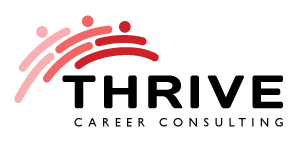The 21st Century Career is upon us. The 2018 Deloitte Human Capital Trends1 report says this about modern careers:
In the 21st century, careers are no longer narrowly defined by jobs and skills but through experiences and learning agility
Influenced by the rapid advancement of technology and changing workplace talent models, careers are no longer the stair-step paths of our parents. And increased longevity means people are living and working longer – a 60-70-year span of learning and work (paid or unpaid). The changing nature of careers also creates a paradox2. Companies know that career development is a crucial driver of employee engagement, yet at the same time careers are becoming more challenging for individuals to navigate if there is no clear path, and managers may lack training or confidence to support employee career conversations. Bottom line: your manager won’t have all the answers.
To achieve the success you want in your career, you need to act as your own talent agent. You have to know yourself, know the business you are in, and own 100% of your responsibility to develop yourself for what’s next.
Know Yourself: What’s Your Talent?
Self-awareness is your best ally. This means you need to:
- understand what personal values are most important to you to guide career choices;
- know your strengths – things in which you have successfully demonstrated both competence and confidence – as well as your blind spots; and
- know your brand – understand and manage your “reputational capital”.3
Know the Business: What’s Your Target?
Talent is not just about what you can do, it’s about what you can do for the business to help them be successful. To land that next role, you need to:
- build deep knowledge of the company, profession and industry so you can understand trends and where the business is going;
- know what success looks like and how it’s measured – for your role, and for the business; and
- be visible – cultivate key relationships and show them the impact you have made.
Own Your Development: What’s Your Plan?
If your workplace supports employee development, celebrate it and take advantage of every opportunity. However, companies may limit and prioritize what they can offer (and to whom) based on what is most needed for the business, so make sure you have your own plan — and budget — to continuously grow your skills and experience. This means you need to:
- be able to articulate your development and career goals, and align them to what the business needs (now or in the future);
- know what you need to develop for your “what’s next” role, and seek out training, experiences and work-integrated learning opportunities; and
- Keep track of your measurable accomplishments and results to show them the “What | How | WOW!”.
Sources:
- https://www2.deloitte.com/insights/us/en/focus/human-capital-trends/2018/building-21st-century-careers.html
- https://www.cpiworld.com/career-coaching-your-competitive-edge-for-employee-engagement/
- http://www.canadabeyond150.ca/reports/future-of-work.html
